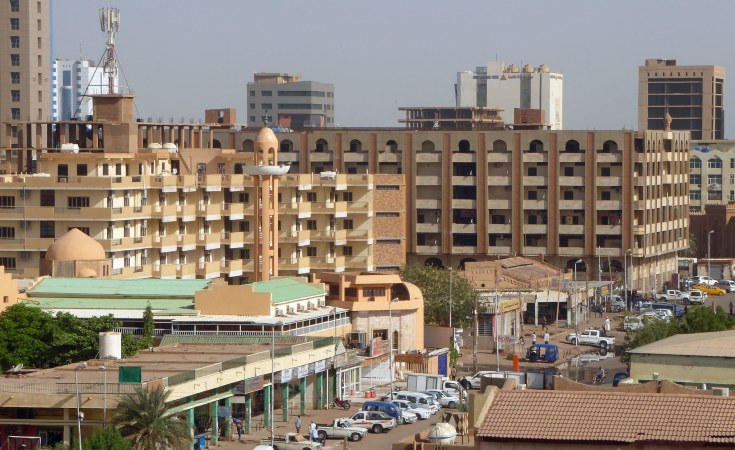Khartoum — Journalist and political analyst Ashraf Abdelaziz says that the official visit of six international envoys yesterday, along with a visit from Russian Foreign Affairs Minister Sergei Lavrov today, is linked to conflict over Sudanese resources.
Six envoys representing the US, UK, France, Germany, Norway, and the European Union envoy to the Horn of Africa will meet with the head of the Sovereignty Council, Lt Gen Abdelfattah El Burhan, his deputy, Lt Gen Mohamed 'Hemeti' Dagalo, and the Minister of Foreign Affairs. They will also meet with representatives of the parties to the current political process.
Ambassador Ali El Sadig, acting Minister of Foreign Affairs, told Sudan News Agency (SUNA) that the visit comes with the aim of advancing the political process and bringing the views of the political parties closer together.
The envoys aim to urge the many actors in Sudan's political process to make the necessary concessions to achieve reconciliation and democratic transition in the country. He said that the envoys want the country to prepare for civilian governance which "will open Sudan up to the international community."
The current political process will eventually lead to a final agreement with the military junta, after which a transitional government of technocrats will be formed.
The envoys are also scheduled to meet with the UNITAMS mission and United Nations agencies operating in Sudan. They will discuss humanitarian assistance provided by their countries through the agencies, UN programs, and other international organisations.
Geostrategic importance
Abdelaziz told Radio Dabanga that "the West wants to limit Russian influence in the region, so it is supporting the current political process to achieve stability. This will ensure the extension of their influence to this important region."
Sudan is of geostrategic importance because of its proximity to the Red Sea, which is a vital water resource for several countries surrounding it.
In addition, Russian Wagner forces present on the border with the Central African Republic have created "increasingly frequent security challenges" which puts access to gold mines in jeopardy in Darfur.
Abdelaziz pointed out that the visit indicates new attempts by the US and France to rearrange their influence in the region after Chad announced a siege on Russian Wagner forces from Sudan, Central Africa, and Libya. The siege was followed by the visits of El Burhan and Hemeti to Chad.
The West also wants to support the Framework Agreement and the political process to achieve stability in Sudan, said Abdelaziz. "By bringing [El Burhan] back into its fold, the US hopes to tip the balance of power between the junta leader and Hemeti in favour of the former," wrote Antoine Galindo and Antoine Rolland in Africa Intelligence on January 26.
Foreign affairs visit
Lavrov's visit to Sudan "is part of visits to a number of countries in the region, including Mali, to consolidate Russian presence," according to Abdelaziz.
Lavrov will meet with his Sudanese counterpart El Sadig to discuss bilateral, regional, and international affairs. They will tackle means to increase trade and investment between their countries. According to SUNA, El Sadig is keen on bolstering bilateral relations with Russia.
The journalist warned of a Western-Russian conflict over Africa, noting the close relationship between Russia and the notorious Rapid Support Forces (RSF) militia commanded by Hemeti.
A Sudanese delegation headed by the commander of the paramilitary RSF and vice-president of the Sovereignty Council, Lt Gen Mohamed 'Hemeti' Dagalo, arrived in Moscow on February 23 last year, a day before Russia invaded Ukraine. According to political analyst Magdi El Gizouli, the visit to Russia was arranged by the Russian "Wagner mercenaries in order to find a way out for their ally in Sudan, and to ensure his continuation in power so that they can continue to plunder the country's resources."


